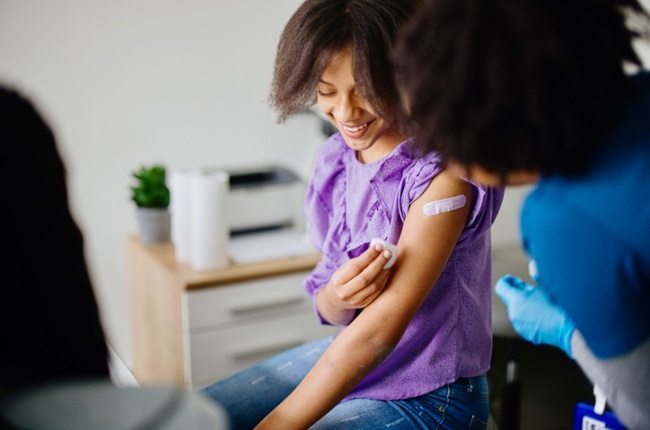
Cervical cancer is the second leading cause of death among women in SA.
And yet the past few years of being battered by the coronavirus have made many people vaccine-hesitant.
But the terminology here is critical. “The semantics are important,” Leigh Crymble, Bread Crumbs Linguistics founder and Wits University Behavioural Economics doctoral candidate told Drum in a previous interview about vaccine hesitancy.
"There aren’t actually that many anti-vaxxers around – thank goodness. This group is almost too far gone to convince otherwise. They don’t have rational discussions, they don’t change their minds when faced with anything that resembles scientific proof, and they’re deeply suspicious of any experts – as many cult-like groups are.
"The vaccine hesitant are different. These are people who have legitimate concerns or fears and need to be addressed with empathy and care.”
With a growing number of parents reluctant to get their kids jabbed following the health department's drive to do HPV vaccinations in schools, we look at why inoculation against this virus can be life-changing.
The Human Papillomavirus (HPV) is a tough virus that causes cancers such as cervical cancer. An alarming fact is that you can have it for years and not know that you do.
- WHAT IS HPV?
HPV is an infection that causes warts in various parts of your body, depending on the strain you have contracted.
The virus is common with over 130 sub-types, 40 of which affect the genital area and everyone is at risk of having the virus.
“HPV can cause infections which can lead to cancer in both men and women. There are often no symptoms of HPV infection and it can lie undetected for years. In that time, the infected person can pass it unknowingly onto others,” according to Dr Trudy Smith, a gynaecologist and obstetrician based in Johannesburg.
Read more | Human papillomavirus (HPV) vaccination second round – what parents need to know
HPV can be a silent killer because those with the virus often only seek help when a resultant cancer is at an advanced stage, says University of Stellenbosch's gynaecological oncology expert, Professor Hennie Botha
“Many women are diagnosed with cervical cancer in their mid to late 30s. It is most likely that these women were exposed to cervical cancer-causing HPV sub-types during their teens and 20s,” he says.
- HOW IT IS SPREAD
You can get HPV by having vaginal, anal or oral sex with someone who has the virus as the virus is most commonly spread during vaginal or anal sex.
HPV can even be spread when the infected person has no symptoms. You also can develop symptoms years after you have sex with someone who is infected, making it hard to know when you first became infected.
Dr Trudy adds that the virus is transmitted in different ways, but is predominately spread by skin-on-skin contact.
You can get it from a man’s penis or fingers, however, it is highly unlikely that you can get it from a toilet seat.
Professor Hennie says the virus clears naturally in most people, while it doesn’t in others.
In men, it is likely to be linked to anal, penile, head and neck cancers. “Although screening programmes for HPV in boys and men are lacking, pap smears may detect certain cancer-causing strains of HPV in women,” he says.
In women, HPV causes most cases of cervical cancer.
- VACCINATION
The virus is dangerous, so there are vaccines to prevent and reduce its effects in your body.
“The best time to vaccinate boys and girls is between the ages of nine and 12 years because the younger the child, the better their body’s ability to mount an immune response against HPV. There has been wide acceptance of the vaccine in public schools, but there are still many children, boys and young people who remain unprotected. Girls in Grade 4 and their parents are generally well aware of the benefits of protecting against cancer,” according to Professor Hennie.
Read more | Here’s why you need to vaccinate your kids
“Although HPV is considered a sexually transmitted disease, this doesn’t imply that children are sexually active as HPV can be spread through non-sexual activities. It can also spread through blood from the mother to the infant.”
There is currently no single HPV vaccine that protects against all the subtypes.
- NOT ENOUGH AWARENESS
Dr Trudy says there needs to be more awareness on this virus as the vaccines are available from pharmacies, public and private clinics.
Professor Hennie says there is a better chance of fighting the virus if enough people in the population are vaccinated.
Additional reporting by Bonolo Sekudu



















